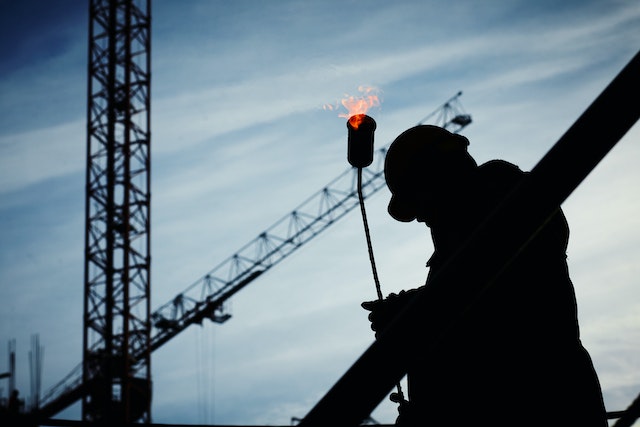
Construction is the fifth largest industry in New Zealand, employing around 183,000 workers as of 2022.With a growing population and infrastructure needs; the demand for construction workers in the country is high, making it an ideal place for locals and foreigners to start a career in construction.
However, navigating the construction job market can be difficult and overwhelming, especially if you’re from abroad. Not only will you have to find construction jobs, but you’ll also need to establish yourself as an immigrant and adjust to a new work environment. Fortunately, you don’t have to undergo this process alone.
In this blog, we’ll discuss New Zealand construction jobs and salaries and how to secure such jobs as a foreigner.
New Zealand’s construction industry has changed vastly throughout the years and it will continue to do so as technology innovations and new labour trends change the system. Here are three construction industry trends in New Zealand for 2023 and beyond.
New Zealand offers a wide array of construction jobs for both local and overseas workers, including Filipinos. If you want to take your construction career to the next level, going abroad should be your best bet. Below are some New Zealand construction jobs for Filipinos.
1. Stonemason
Average pay: $25-$40/hour
Stonemasons construct or renovate buildings, fittings, walls and paving, or create monuments using stone. To qualify for this job, you’d need to know about different stone types, stone-cutting and polishing techniques, and safe work practices. Stonemasons are also required to know how to use traditional hand tools and have design skills.
2. Electrician
Average pay: $33-$39/hour
Electricians in New Zealand install, maintain, and repair electrical systems, interpret electrical information on diagrams and plans, and perform safety tests, among other things. To work as an electrician in the country, you need to first know electrical laws, codes, and practice standards. You should also know how to:
● Install electrical wiring and fixtures
● Draw wiring diagrams and floor plans
● Perform basic math and physics
● Follow safety procedures
● Perform first aid
3. Glass installer/glazier
Average pay: $21-$30/hour
Glaziers are responsible for installing glass or mirrors in buildings, vehicles, or boats. They also shape and cut glass or mirrors, remove broken glass, and create decorative glass. You’d need to know how to work with different glass types and building standards to work as a glazier in New Zealand.
4. Plumber
Average pay: $35-$42/hour
Similar to gas fitters and drain layers, plumbers in New Zealand install and repair pipes, drains and fixtures, and fittings for water and gas. They’re also in charge of laying and repairing drains, and installing gas stoves, toilets, basins, septic tanks, and air-conditioning systems, among other things.
5. Carpenter
Average pay: $25-$45/hour
Carpenters are responsible for repairing or installing foundations, walls, roofs, windows and doors in houses and buildings. Job posts for this one may vary depending on skills, experience and the contractor they work with.
6. Painter
Average pay: $22-$33/hour
Paints and decorators in New Zealand perform the following duties:
● Apply decorative and protective finishes to interior and exterior areas of a building
● Fill holes, cracks, and joins
● Provide advice on colors
● Apply wallpaper, vinyl, and backing paper
● Mix paint colors
7. Joiner
Average pay: $21-$25/hour
Also known as shopfitters and joinery machinerists, joiners create cabinets, doors, window frames, and stairs using timber and board products. They also draw diagrams and plans and fit finished products in their clients’ homes or businesses. You should possess the following skills to work as a joiner in New Zealand:
● Woodworking and machinery
● Joinery equipment management
● Basic math
● Diagrams or plans design and interpretation
● Timber selection
8. Earthmoving machine operator
Average pay: $20-$35/hour
Earthmoving machine operators are alternatively called bulldozer drivers, civil plant operators, and backhoe operators, among other names. Generally, they’re responsible for operating construction machines such as bulldozers or graders, to move and shape land and rubble. They also perform the following tasks:
● Excavate and load land and other materials onto trucks
● Maintain their respective machines
● Use Global Positioning Systems (GPS), plans, and diagrams to work
To work as an earthmoving machine operator in New Zealand, ensure that you can operate and maintain heavy machinery, know different digging attachment types, and read GPS, plans, diagrams, and drawings
9. Crane operator
Average pay: $26-$35/hour
As the name already implies, crane operators use cranes to move construction materials, containers, and heavy parts. They also organize lift plans, ensure cranes carry the allowable weight of loads, and move loads to their required positions.
You’d need to know how to prepare and attach loads, maintain and operate their machines, and understand and use ground-to-crane hand signals to work as a crane operator in New Zealand.
If you’re looking for a New Zealand construction jobs for Filipino or a New Zealand employment agency, Staffhouse International Resources offers recruitment services for Construction and Engineering industry.
Securing or opening construction jobs in New Zealand takes work. Overseas workers must not apply to different employers, but also learn how to move abroad, adjust to a different work culture, and upskill to qualify for lucrative opportunities. On the other hand, employers must learn how to handle local and overseas workers and ensure they have the proper skills, equipment, and compensation to work efficiently.
With that said, enlist the help of a New Zealand employment agency such as Staffhouse to cover your needs. Since 1999, we’ve deployed thousands of Filipinos abroad, including construction workers who want to move to greener pastures. We’ve also helped countless employers in other countries fill their vacancies or expand their workforce with talented and hardworking employees.
Contact us via our website or Facebook page to know more.